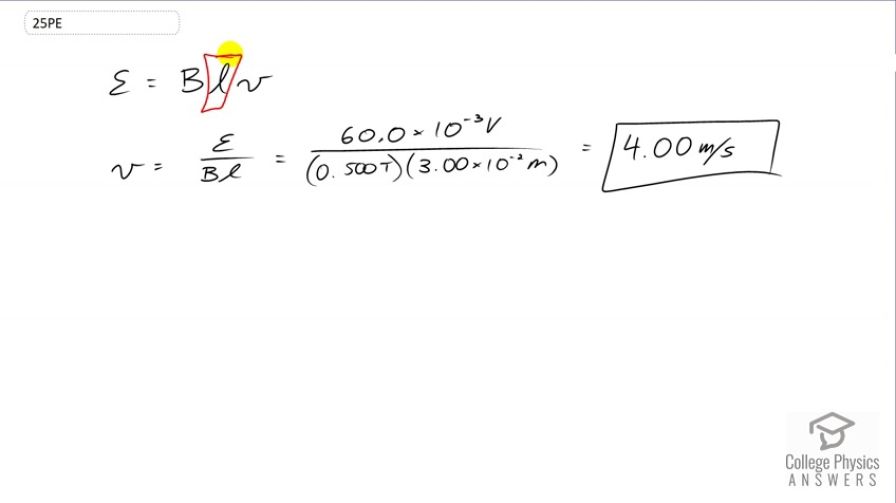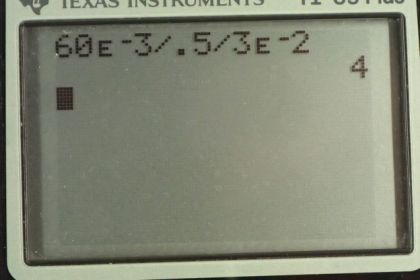Question
A nonmechanical water meter could utilize the Hall effect by applying a magnetic field across a metal pipe and measuring the Hall voltage produced. What is the average fluid velocity in a 3.00-cm-diameter pipe, if a 0.500-T field across it creates a 60.0-mV Hall voltage?
Final Answer
Solution video
OpenStax College Physics for AP® Courses, Chapter 22, Problem 25 (Problems & Exercises)

vote with a rating of
votes with an average rating of
.
Calculator Screenshots
Video Transcript
This is College Physics Answers with Shaun Dychko. The Hall Effect voltage is the magnetic field strength times the diameter of the pipe and then times the speed of the fluid travelling through it. And so we can solve for v by dividing both sides by magnetic field strengths and pipe diameter. And so that's going to be 60 times ten to the minus three Volts because that's what 60 milli Volts is after you convert into Volts and then divided by 0.5 Tesla times three times ten to the minus two meters and this gives 4.00 meters per second.
